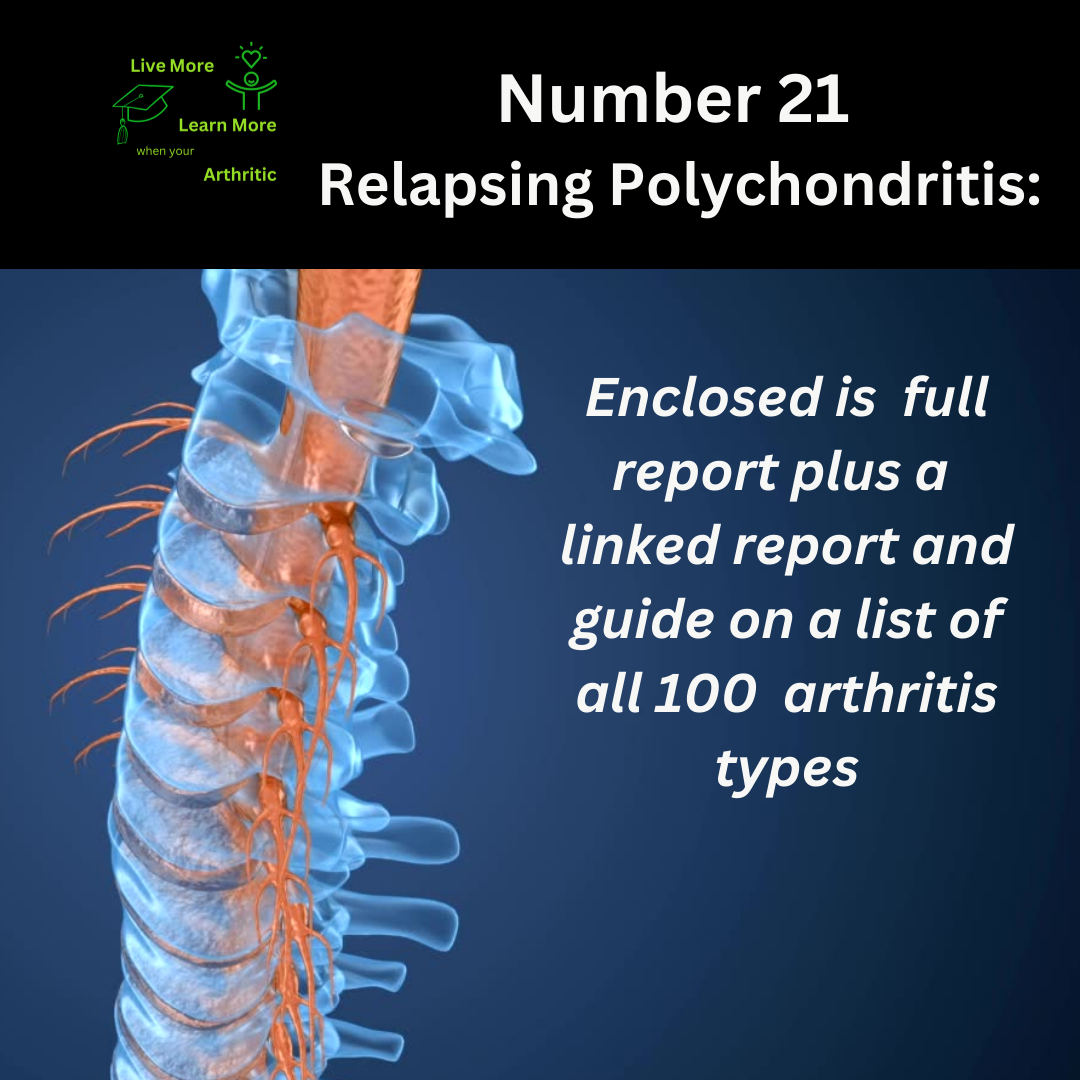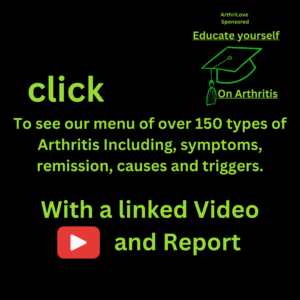
Relapsing Polychondritis: Number 21 on the list of 100 types of Arthritis
Relapsing Polychondritis: A Journey Through Cartilage and Beyond
In the realm of medical mysteries, few conditions are as elusive and fascinating as Relapsing Polychondritis (RP). This rare autoimmune disorder challenges our understanding of the body’s immune system, affecting cartilage in unpredictable and often life-altering ways. Buckle up for a journey through the ins and outs of RP, where science meets the personal stories of resilience and hope.
 Description: The Elastic Cartilage Conundrum
Description: The Elastic Cartilage Conundrum
Picture this: your body’s immune system, typically a stalwart defender against invaders, inexplicably turns against your own cartilage. RP is characterized by recurrent episodes of inflammation in cartilage throughout the body, including the ears, nose, joints, and even the respiratory system. This relentless assault on cartilage can lead to deformities, pain, and complications that extend beyond the physical.
Causes: The Immune System’s Misfire
While the exact cause of RP remains elusive, researchers believe it stems from an autoimmune response gone awry. The immune system mistakenly identifies healthy cartilage as a threat and launches an attack, triggering inflammation and tissue damage. Genetic predisposition and environmental factors likely play a role in setting the stage for this autoimmune rebellion.
Triggers: Unveiling the Culprits
RP episodes can be triggered by various factors, from physical trauma to infections or even exposure to certain environmental substances. Each trigger is like a spark igniting the immune system’s inflammatory response, setting off a cascade of symptoms.
Symptoms: The Telltale Signs
Recognizing RP’s symptoms is crucial for early intervention. Patients may experience pain, swelling, and tenderness in the ears, nose, and joints. Limited range of motion due to joint inflammation can significantly impact mobility and daily activities, adding another layer of challenge to those living with RP.
Age of Onset: Unpredictable Beginnings
RP can strike at any age, but it most commonly appears between 30 and 60 years old. Its onset often catches individuals off guard, disrupting lives and posing unique medical puzzles for both patients and healthcare providers.
Impact on Lifespan: Navigating Uncertainty
While RP can indeed affect lifespan, the prognosis varies widely. Complications such as airway and heart involvement can pose serious risks. However, with proactive management and advancements in treatment, many individuals lead fulfilling lives despite the challenges posed by RP.
Autoimmune Arthritis: Unveiling the Connection
RP is indeed classified as an autoimmune form of arthritis. The immune system’s assault on cartilage shares commonalities with other autoimmune arthritic conditions, underlining the intricate web of immune dysregulation in these disorders.
Improving Quality of Life: A Proactive Approach
Managing RP requires a multifaceted approach that goes beyond conventional treatments. Lifestyle modifications, stress management, and a focus on holistic well-being can enhance quality of life. Engaging in gentle exercises that promote flexibility and strength while avoiding high-impact activities can be beneficial.
Possible Complications: Navigating the Terrain
RP’s complexities extend beyond cartilage inflammation. Complications may include airway narrowing, heart valve inflammation, and even hearing loss. Vigilant monitoring and prompt intervention are crucial to mitigate these risks.
Holistic Breakthroughs: Exploring Natural Avenues
While RP primarily requires medical management, some individuals explore holistic approaches to complement conventional care. Practices such as acupuncture, dietary modifications, and mind-body techniques may offer supportive benefits, though their efficacy varies from person to person.
 Demographic Insights: Who is Affected?
Demographic Insights: Who is Affected?
RP affects men and women equally, but certain patterns emerge. Women often experience symptoms earlier in life, while men may encounter a more severe disease course. Understanding these nuances informs personalized treatment strategies.
Interconnected Conditions: The Web of Autoimmunity
RP is often associated with other autoimmune conditions such as rheumatoid arthritis or lupus. The overlap underscores the importance of comprehensive healthcare management, addressing interconnected health concerns holistically.
In the enigmatic landscape of Relapsing Polychondritis, each person’s journey is unique. Armed with knowledge, support, and a proactive mindset, individuals with RP navigate life’s twists and turns with resilience. While the road may be challenging, the human spirit’s capacity to adapt and thrive in the face of adversity shines brightly.
This exploration of Relapsing Polychondritis is a testament to the power of understanding and compassion in confronting rare medical conditions. Let’s continue championing awareness, research, and empowerment for all affected by RP and beyond.